
Die besten 25+ John locke tabula rasa Ideen auf Pinterest John locke
Tabula Rasa describes the idea that people begin life as a blank slate onto which experiences are mapped, forming a person. Aristotle was the first writer to talk about the mind as a blank slate.
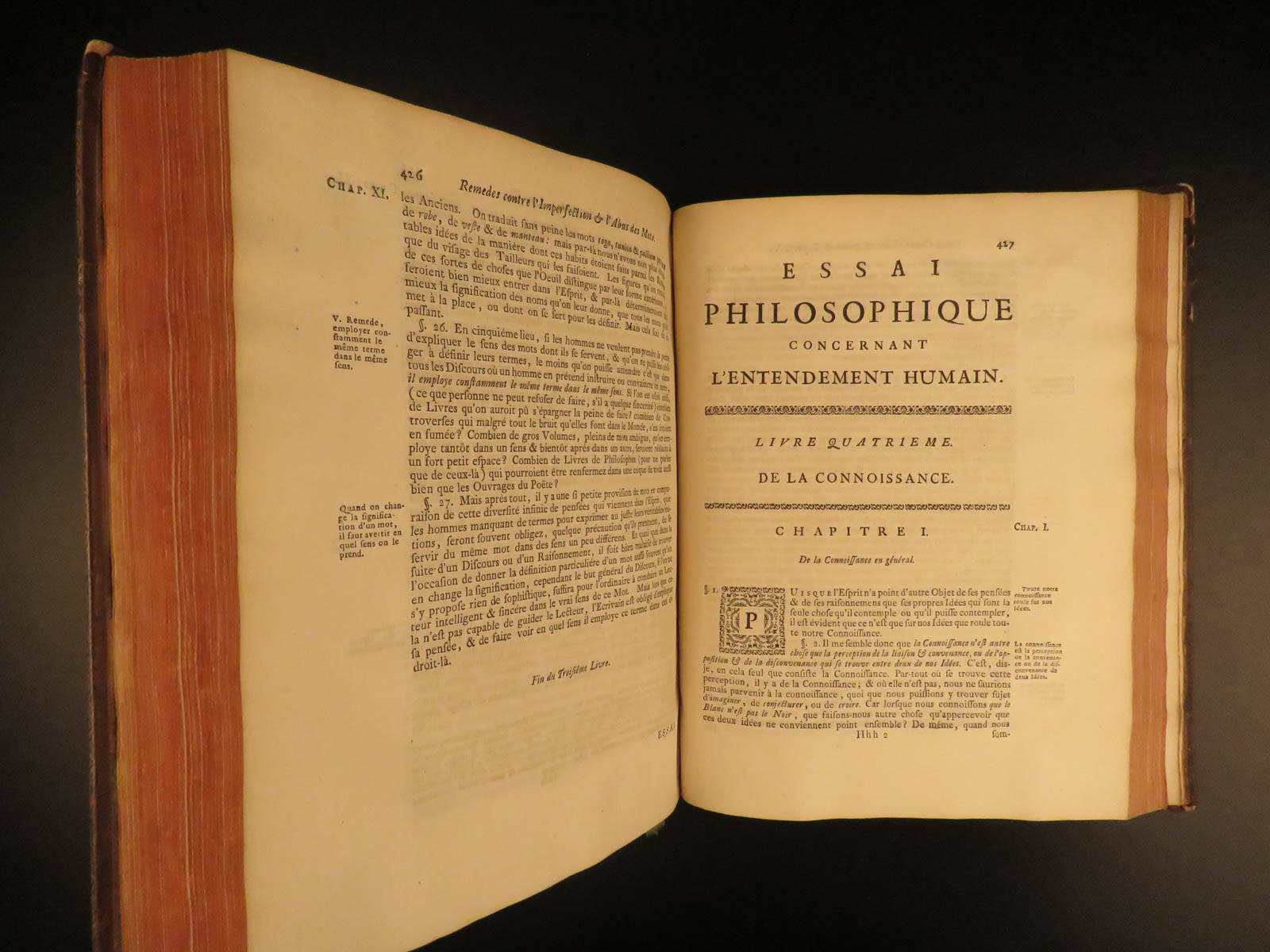
Tabula rasa john locke mokasinsci
By Jamie Gianoutsos Both John Locke (1632-1734) and Jean-Jacques Rousseau (1712-1778) write as early modern social contract theorists, and both promote reason and freedom as essential components of political societies. Yet these thinkers take many distinct, and at times opposing, stances on education.

Locke and tabula rasa. (PDF) Tabula Rasa and Human Nature. 20190123
JOHN LOCKE. 2 Dorset Court, 24th of May, 1689 THE EPISTLE TO THE READER READER, I have put into thy hands what has been the diversion of some of my idle and heavy hours. If it has the good luck to prove so of any of thine, and thou hast but half so much pleasure in reading as I had in writing it, thou wilt as little think thy money, as I do my.

Locke proposed the theory of tabula rasa, meaning mind at birth is a
In his brilliant 1689 work An Essay Concerning Human Understanding, Locke argues that, at birth, the mind is a tabula rasa (a blank slate) that we fill with 'ideas' as we experience the world through the five senses. By 'idea', Locke means "whatsoever is the Object of the Understanding, when a person thinks."

JOHN LOCKE Tabula Rasa y Filosofía. Ep.33 YouTube
Philosophical usage of the tabula rasa as a zero point for theories of the nature of the human mind has been inherited by psychological discourses. This is the case even with authors appearing to agree with the idea of tabula rasa: a telling case is Le Bon's (1899: 62) The Psychology of Socialism.Here Le Bon warns against "crosses between members of different races.
+Two+Treatises+on+Civil+Government:justified+supremacy+of+Parliament%3B+natural+rights..jpg)
John Locke Tabula Rasa Ilmu
Tabula rasa State of nature Right to property Labor theory of property Lockean proviso Argument from consciousness Works (listed chronologically) Fundamental Constitutions of Carolina A Letter Concerning Toleration Two Treatises of Government An Essay Concerning Human Understanding Some Thoughts Concerning Education Of the Conduct of
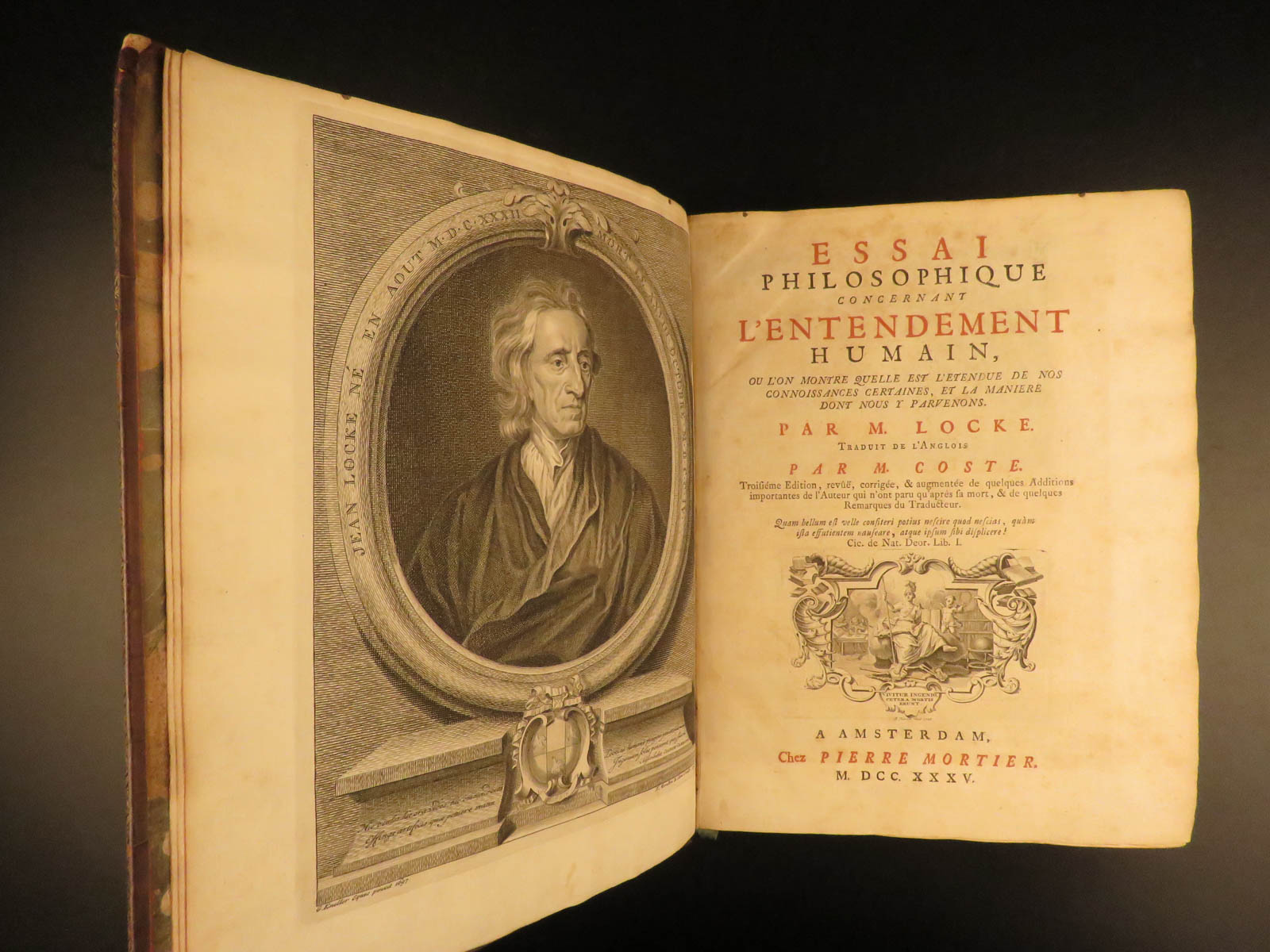
nesúhlas poklop jadrový lock tabula rasa lesk nahrávať vokálne
The misunderstanding is, in part, suggested by Locke's claim that the mind is like a tabula rasa (a blank slate) prior to sense experience.. The Cambridge Companion to Locke's Essay Concerning Human Understanding. Cambridge: Cambridge University Press. A series of essays focusing on specific issues in Locke's Essay. Pyle, A.J. 2013.

John Locke "tabula rasa" John locke, Locke, Desenho
Locke believed the human mind was what he called a "tabula rasa," which is Latin for "clean sheet of paper." He believed infants know nothing when they are born, and that all the ideas humans develop come from experience. 2 Sensation and Reflection Locke believed there were two types of experience: external and internal.

Tabula Rasa JOHN LOCKE ¿Cómo esta nuestra mente al nacer? YouTube
In John Locke's philosophy, tabula rasa was the theory that the (human) mind is at birth a "blank slate" without rules for processing data, and that data is added and rules for processing are formed solely by one's sensory experiences. The notion is central to Lockean empiricism.
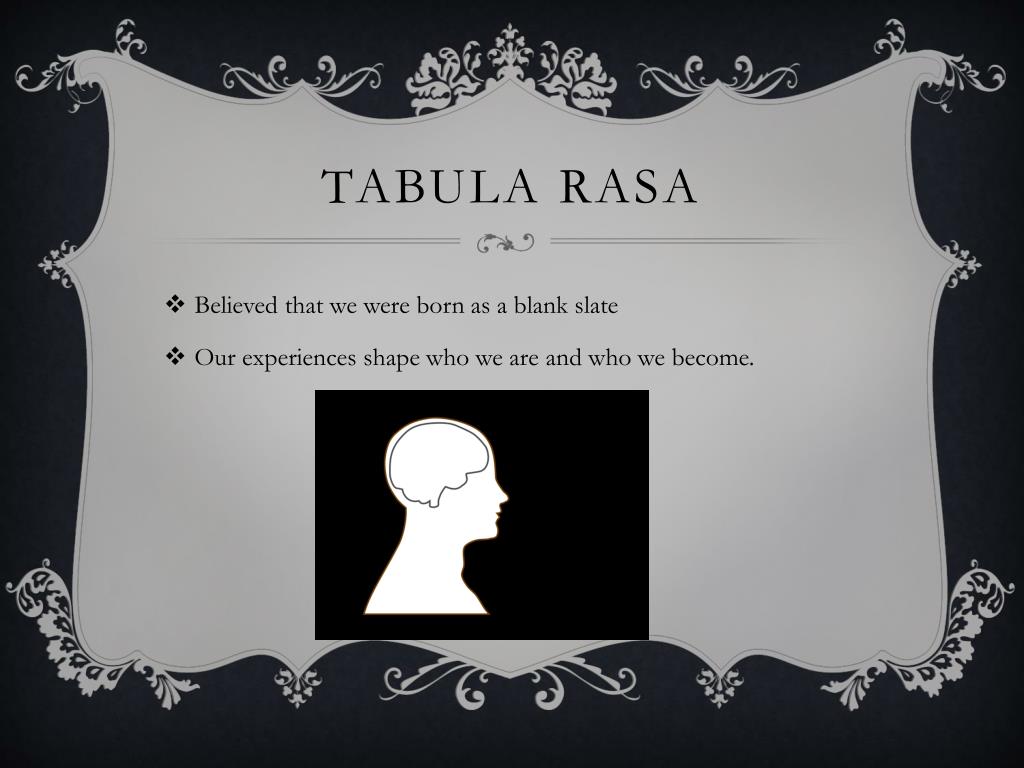
PPT John Locke PowerPoint Presentation, free download ID2483207
The understanding of the primary-secondary quality distinction has shifted focus from the mechanical philosophers' proposal of primary qualities as explanatorily fundamental to current theorists' proposal of secondary qualities as metaphysically perceiver dependent.
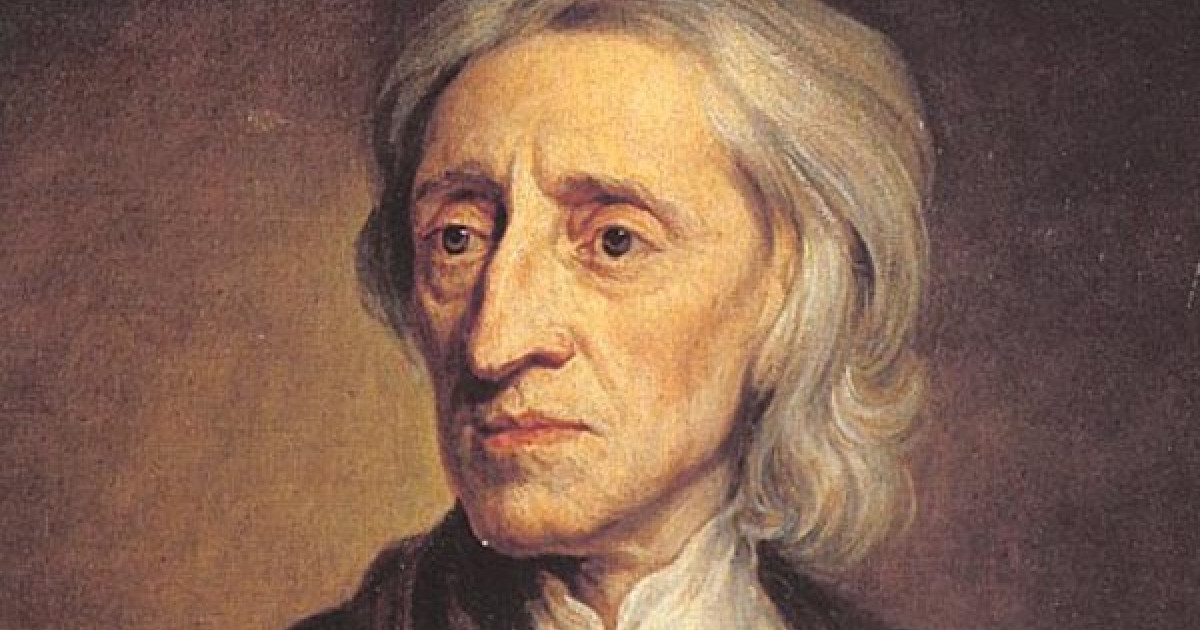
La teoría de la tabula rasa de John Locke
tabula rasa, (Latin: "scraped tablet"—i.e., "clean slate") in epistemology (theory of knowledge) and psychology, a supposed condition that empiricists have attributed to the human mind before ideas have been imprinted on it by the reaction of the senses to the external world of objects.

John Locke Tabula Rasa Primary and Secondary Qualities Philosophy
Tabula rasa State of nature Right to property Labor theory of property Lockean proviso Argument from consciousness Works (listed chronologically) Fundamental Constitutions of Carolina A Letter Concerning Toleration Two Treatises of Government An Essay Concerning Human Understanding Some Thoughts Concerning Education Of the Conduct of

nesúhlas poklop jadrový lock tabula rasa lesk nahrávať vokálne
John Locke (b. 1632, d. 1704) was a British philosopher, Oxford academic and medical researcher. Locke's monumental An Essay Concerning Human Understanding (1689) is one of the first great defenses of modern empiricism and concerns itself with determining the limits of human understanding in respect to a wide spectrum of topics.
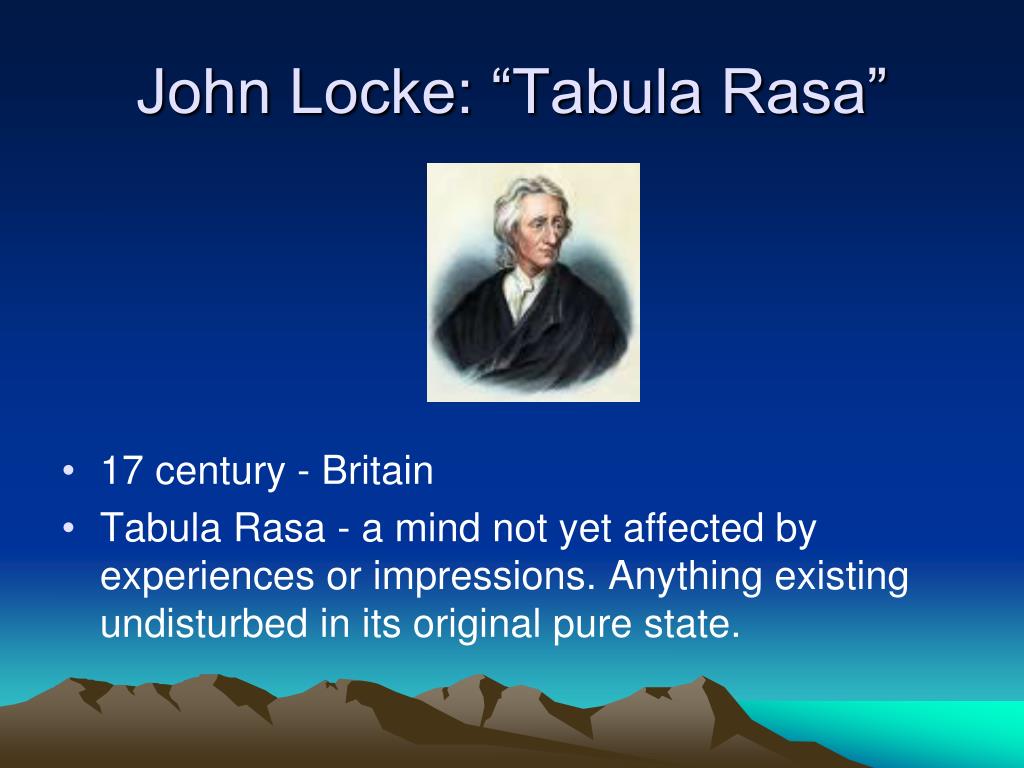
PPT Lord of the Flies Philosophies of good and evil PowerPoint
plural tabulae rasae ˌta-byə-ˌlī-ˈrä-ˌzī -ˌsī 1 : the mind in its hypothetical primary blank or empty state before receiving outside impressions 2 : something existing in its original pristine state Did you know? Philosophers have been arguing that babies are born with minds that are essentially blank slates since the days of Aristotle.

What Best Describes the Theories of John Locke BrooklynkruwPacheco
John Locke in his Essay Concerning Human Understanding restated the importance of the experience of the senses over speculation and sets out the case that the human mind at birth is a complete, but receptive, blank slate ( scraped tablet or tabula rasa ) upon which experience imprints knowledge. Locke argued that people acquire knowledge from.

nesúhlas poklop jadrový lock tabula rasa lesk nahrávať vokálne
He argues that at birth the mind is a tabula rasa, or blank slate, that humans fill with ideas as they experience the world through the five senses. Locke defines knowledge as the connection and agreement, or disagreement and repugnancy, of the ideas humans form.